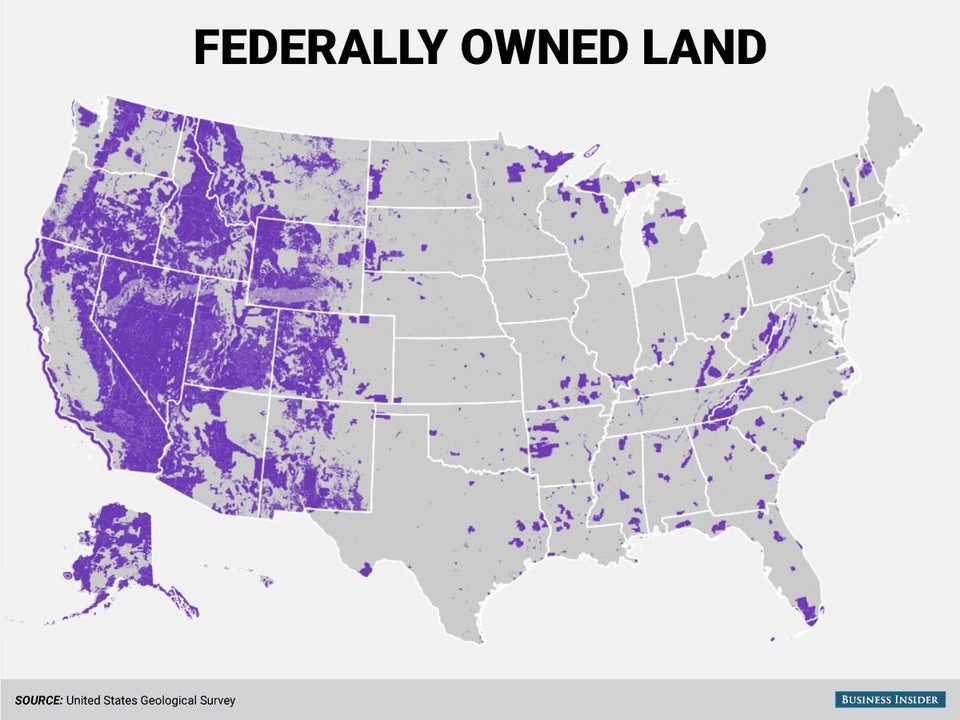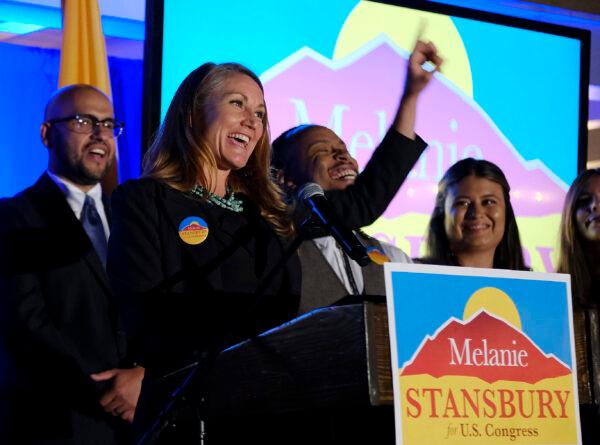Administration’s adoption of benefit-cost matrix to assess the value of ‘nature’ spurs bipartisan criticism in House hearing larded with acronyms.
A generation ago, federal public lands advocates across the western United States were on alert for “blue helmets” in black unmarked helicopters engaged in a secret plan, a conspiracy by the United Nations to control access to America’s vast federal lands.
That may have been bonkers, but the fear of a United Nations “takeover” of public lands in the United States persists, only this time, it’s not “blue helmets” in helicopters but accountants and global financiers with red pens who are allegedly undermining American sovereignty.
So claim House Republicans, who say the Biden administration is actively aiding and abetting this “green colonization” despite bipartisan opposition to its adoption of a benefit-cost analysis matrix developed by the United Nations that uses “natural capital accounting” (NAC) and “ecosystem services valuation” (ESV) in crafting federal public lands policy, regulations, and rules.
“The Biden administration is aligned with radical anti-use eco-activists and nonprofits whose ultimate goal is to eliminate fossil fuel production by any means … and lock up our public lands and water, no matter the harm done to our nation,” Rep. Mike Collins (R-Ga.) said during a March 7 hearing before the House Natural Resources Committee’s Oversight and Investigations Subcommittee.
Mr. Collins, serving as chair in the absence of Rep. Paul Gosar (R-Ariz.), said while there is bipartisan support for trimming regulatory bureaucracies, the Biden administration is piling new administrative layers into every public land-use decision.
“Right off the bat, this is a terrible idea that will impact federal policy decisions across the board and throw yet another roadblock in the way of critical resource development projects,” he said. “Moreover, the directive to incorporate [NCA and ESV] into benefit-cost analysis will provide activists litigants with another weapon in their anti-use sue-and-settle arsenal.”

Under the strategy, agencies are compelled to “embed natural capital accounts and associated environmental-economic statistics in the broader U.S. economic statistical system” over a “15-year phased approach.”
According to the memo, “While establishing fair accounting standards is essential for financial activity, critics argue that fair, objective accounting standards cannot be adopted to account for natural capital and ecosystem services.”
Such “schemes,” the memo states, “are simply ways to monetize nature with subjective accounting methods. Moreover, both the left and right have raised concerns that NCA and ESG could shift decisions regarding the use and control of land from local communities and stakeholders to financial elites and foreign interests.”
House Republicans maintain the Biden administration has implemented this strategy in guidance to federal land-use agencies “without proper consideration of the widespread implications” in benefit-cost analyses that will have “tremendous influence on federal actions and policy outcomes,” the memo maintains.
Critics—which include an array of liberal groups—insist NCA and ESV are inadequate, unneeded, and incomprehensibly complex.
The GOP’s committee memo denounces both as attempts to “financialize nature,” calling them “a dangerous form of green colonialism controlled by international financiers and global elites seeking to lock up land from local stakeholders.”
Under the strategy agencies are compelled to “embed natural capital accounts and associated environmental-economic statistics in the broader U.S. economic statistical system” over a “15-year phased approach.”

Project, Protect Nature’s ‘Value’
Proponents maintain NCA and ESV are needed tools for gauging and protecting “nature’s role” in modern economies and communities.
NCA produces consistent, systematically generated data to enhance “cross-sector” policy decisions for natural resource management in the context of economic and business sustainability, they say.
ESV supporters argue calculating the economic value of “ecosystem services” will help policymakers and resource managers “make rational decisions that factor important environmental and human health outcomes into the bottom line.”
Rep. Melanie Stansbury (D-N.M.) said there is nothing new in NCA and ESV.
“It has been, for decades, a bipartisan effort to really fully account for the system benefits of our environment,” she said, noting “it was championed during the Bush administration … continued by the Trump administration when they came in, and the Biden administration is now continuing those efforts.
“It is not a partisan attack on the environment or public lands, but an accounting system for making fair and appropriate decisions.”
Ms. Stansbury said critics are attacking the valuation systems without understanding what they are.
“As we develop the vast infrastructure water projects, roads, and other pieces of infrastructure that made this nation great, we did so at a great expense to the environment, to cultural resources, and we understand now, in the 21st century, that we must account for those services as we’re making decisions. That is what ecosystem services is all about,” she said.

Conservation a ‘Primary Use’
Several panelists praised Ms. Stansbury for apparently understanding NCA and ESV because there aren’t many who can comprehend what the hundreds of pages of regulatory cement mean in the real world.
Federal public land policies have been guided for a century by the Taylor Grazing Act, the Federal Land Policy Management Act (FLPMA), and the Public Rangelands Improvement Act (PRIA), Mr. Butcher said.
Under those statutes, “the BLM’s core mission” under the Taylor Grazing Act is to manage lands for domestic livestock grazing, range development, and “stabilization of the livestock industry dependent on range access as its principal use, not wildlife conservation,” he said.
The proposed CLHR “has irreconcilable flaws and should not be adopted,” Mr. Butcher said, noting it is “substantively the same” as the 2016 BLM Resource Management Planning 2.0 Rule that was rejected by Congress.
Once a rule has been rejected by Congress, federal agencies are prohibited from adopting a similar or new rule. That’s the law, he said, but that’s not what the Biden administration is doing here.
“This fact alone makes the adoption of the CLHR rule illegitimate,” Mr. Butcher said.
Mr. Butcher said that assessment is blatantly blind to the substantial negative impact the rule would have on local economies that “rely on the multiple use sustained yield model defined in FLPMA. The position that there would be little impact is absurd on its face.”
“The first step in monetizing and selling natural assets requires the development of a natural asset inventory and a mechanism to hold those assets for their conservation value,” he said. “The introduction of a seventh principal use, conservation, for these reserved federal lands aligns well with the scheme of monetizing our public lands.
“Not only does this scheme lack any authority for its action,” Mr. Butcher concluded, “it is in direct conflict with the statutory intent that public lands be used for productive pursuits.

‘Whole-(Lot)-of-Government’
Utah Treasurer Marlo Oaks said adopting NCA and ESV is spurring global investors to push the federal Securities and Exchange Commission (SEC) to create a new type of company for public investment—a Natural Asset Company—“to manage land not for economic activity, but to maximize ‘ecological services.’”
The New York Stock Exchange submitted such a proposal in September to the SEC, he said. It has not been approved, but proponents aren’t backing down, he said,
Establishing publicly traded Natural Asset Companies that are inventoried and valuated under NCA and ESV guidelines poses “a significant risk by creating a mechanism for public and private lands to be permanently removed from productive use to address a laundry list of ill-defined resource values, such as climate regulation, ornamental resources, and visual amenity resources,” Mr. Oaks said.
While “guised” as free-market capitalism, such investment vehicles would “lock up America’s natural resources,” he said. “While this would be bad for all Americans, local and state economies and tax bases in resource-rich western states like Utah with dominant federal land holdings would be hardest hit.”
Denver-based Western Energy Alliance President Kathleen Sgamma agreed with Ms. Stansbury that NCA and ESV are nothing new, especially since Mr. Biden assumed office in January 2021 and imposed “whole-of-government approaches” to climate change, drug addiction, supply chain resilience, housing, diversity, equity, environmental justice, “and any other number of societal problems.”
“More agencies are regulating in more areas and with more redundancy than ever before,” Ms. Sgamma said. “When everything is a priority for everybody, then nothing is.”
Original News Source Link – Epoch Times
Running For Office? Conservative Campaign Consulting – Election Day Strategies!


